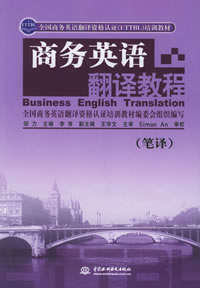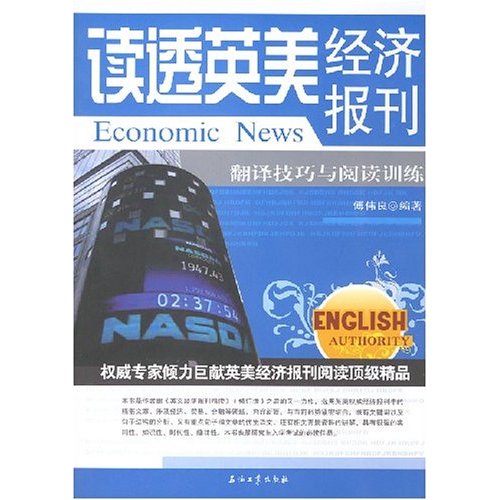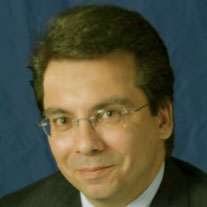Getting Started as a Translator:Gleanings from Honyaku (第三部分)
作者:古龙 2009-07-04




语际翻译公司 转载请注明https://www.scientrans.com
∗本栏目部分文章内容来自互联网,部分已经过本站编辑和整理,如有版权事宜请联系Email/MSN jesczhao@hotmail.com
I would also say that game software, anime, and other such areas are indeed very difficult areas to master for a translator, but if they are an interest of yours, than by all means let that be your road to translation - there is a market for work in those fields, and particularly for game software. No one says everyone has to translate patents and annual reports. I personally would much rather translate something I find interesting; translating a piece of boring or uninteresting material can be about as much fun as watching paint dry.
Scott Urista
________________________________________
There are very few people in this world who can translate a complex Japanese phrase into a natural-English sentence well. There is a tremendous amount of work to be done however that demands such skills.
I am on my 5th year of living in Japan (not consecutive years) and I feel that I am far from being able to translate without a safety net. But in the environment that I work (I kind of have an in-house HONYAKU list over here), the skills that I have are valued and in my opinion, fairly well compensated.
Howard Joseph Jackson
________________________________________
Though several people have suggested specializing in a particular field, that is not the only choice. I and at least a few other people on this list do not have a readily definable field of specialization. Some types of work in which source-language comprehension and target-language eloquence are more important than field-specific knowledge are advertising and public relations; speeches, scripts, and other texts for spoken delivery; newspaper and magazine articles; and, for those who don't mind penury, literature. If you have many interests and have trouble choosing a specialty, then don't be afraid to become a translator first and a specialist later or never.
Since I started studying Japanese only after I came to Japan, I can't quite imagine what it's like to try to achieve fluency in the language without being here. But until you have a chance to come to Japan (and afterwards as well), one of the best ways to prepare yourself linguistically to be a translator is to read a lot of Japanese. Read novels, magazines, newspapers, video game manuals, manga--whatever you're interested in. Read a lot, and keep reading even if you don't understand everything. If you find yourself losing interest because it takes too long to look up unfamiliar words in dictionaries, then separate your reading from your vocabulary building: read and read and read without a dictionary, and study vocabulary using word lists and textbooks.
Finally, one advantage of translation as a profession is that it allows relatively easy transition to and from other professions. As others have noted, most translators start out doing something else before becoming translators. What is less often mentioned here is that people also leave translation to take up other careers, including teaching, editing, writing, research, and running their own businesses. Many people, including myself, wear multiple hats simultaneously. In each case, the experience gained in one profession pays off in the others.
Tom Gally
________________________________________
Basically you can be a specialist, or not, it depends on your own priorities, interests, and favorite skills.
This is divided into two sections: Reading and Parachuting.
Reading
I started translating after I found I could keep reading a book or magazine in Japanese with little frustration, even after the batteries in my Canon WordTank had died<g>. I'll just say I studied for a Lot of Hours to be able to do that--and I have always found second language acquisition to be Really Easy and Enjoyable, relative to most of my peers.
My study of reading and vocabulary was almost entirely self-directed and I never went to a Japanese language school, except for a very short time. What I did do was regularly participate in a language exchange arrangement focused on spoken communication. Also, throughout this time, I was living in Japan and using the language for practical purposes on a daily basis.
Parachuting
I recommend that you (and most people) read Richard Bolles' book, What Color is Your Parachute?, and do the exercises found therein for clearly identifying your core interests and areas of genius. Identifying those things that you can both do well, and love doing, is very difficult, for most people. That's why going through a systematic exploratory process to figure them out is very important, for most people. Bolles' book offers a great process for identifying both your favorite skills (What you want to do) and your favorite fields of knowledge or endeavor (Where you want to it).
- 评论
- seme:文章内容文章内容文章内容文章内容文章内容文章内容文章内容文章内容文章内容 章内容文章内容文章内容文章内容文章内容
- seme:文章内容文章内容文章内容文章内容文章内容文章内容文章内容文章内容文章内容 章内容文章内容文章内容文章内容文章内容

- 谈翻译观念的嬗变与翻译技能的训练
2009-6-15 15:33:10 - 《高等学校英语专业英语教学大纲》中规定,大学生通过四年的在校学习,“能运用翻译的理论和技巧,将英美报刊上的文章以及文学原著译成汉语,或将我国报刊、杂志上的文章和一般文学作品译成英语……。译文要求忠实...
- 翻译与网络营销
2009-6-11 0:02:31 - Translation and Your International E-Commerce Strategy Most businesses realize that they ...
期刊征稿
- 第四届IEEE生物信息与生…
2009-6-30 19:42:01 - 基本信息 主办单位: 四川大学,IEEE生物医学工程协会(EMBS) 承办单位 开始日期 2010/06/18 结束日期 截稿日期 2009/1...
- 第九届全国光电技术学术…
2009-6-30 19:35:58 - 基本信息主办单位: 中国宇航学会光电技术专业委员会承办单位 开始日期 2009/11/01结束日期 截稿日期 2009...
















